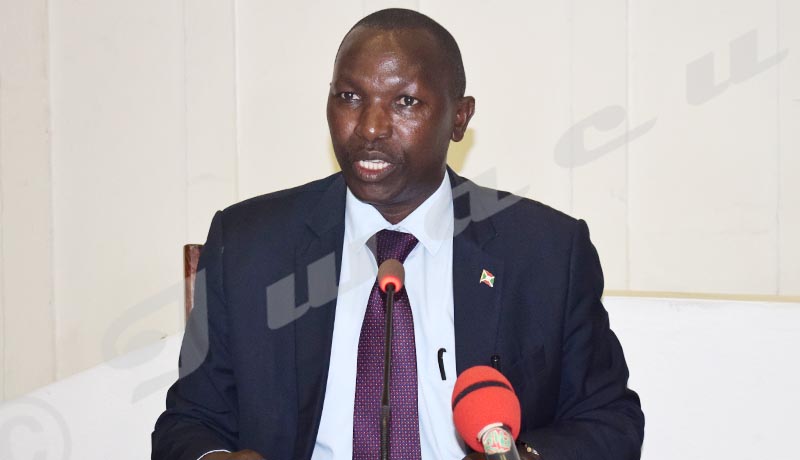In the context of the celebration of the World Population Day on July 11th, the Burundian Minister of Home Affairs has called on the Burundian population to reproduce according to their means.
“Every Burundian, both men and women must plan how many children they will have according to their means,” said Pascal Barandagiye, the Burundian Minister of Home Affairs.

Pascal Barandagiye: “The Burundian population should reproduce according to their means”
He says there has been remarkable improvement in relation to family planning. “25 years ago, only 4% of women could use contraceptive methods but the percentage has now moved to 23,” says Mr. Barandagiye adding that the average is now 5 children per woman whereas it was 7 children 25 years ago.
According to Barandagiye, there is still a long way to go to achieve full family planning. “Some of the reasons behind this are the insufficiency of contraceptive methods in all hospitals, rumors around different ways of birth control, some religions which are against or do not understand the government family planning program and the lack of conversation around reproduction in families,” he says.
Moreover, Mr. Barandagiye says to be satisfied with the decrease in the number of women who die during labor in Burundi. “In 1994, at least 1250 women died during labor but in 2017 the number decreased to 334,” he says.
The United Nations Population Fund -UNFPA corroborates the figures provided by the home affairs ministry but says “there is still work to be done so that no other woman dies while giving birth”.
Burundi is among the smallest African countries with a size of 27,834 square kilometer. The number of Burundian population keeps growing whereas the size remains the same.
According to the report by the Burundi Institute of Statistics and Economic Studies- ISTEEBU, Burundi counts over 12 million people in 2019 and the number is likely to increase up to 20 million in 2050.



















 IWACU Open Data
IWACU Open Data

